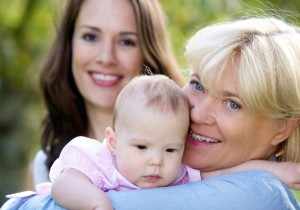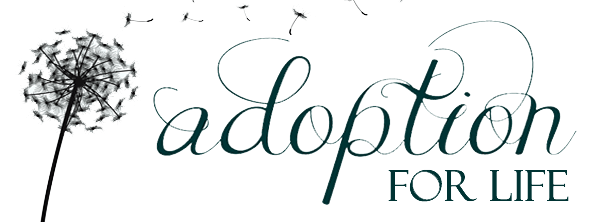 When parents begin the adoption process, they often think about the day they will hold their baby in their arms. In their minds’ eye, they see family portraits with parents and children, imagine family vacations, and creating a life with a child to love them. Until they have a bit more understanding of adoption, they never give much thought to where a birth mother may fit into this story.
When parents begin the adoption process, they often think about the day they will hold their baby in their arms. In their minds’ eye, they see family portraits with parents and children, imagine family vacations, and creating a life with a child to love them. Until they have a bit more understanding of adoption, they never give much thought to where a birth mother may fit into this story.
It is vital to remember that the adoption triad, the three parties to adoption, are all vital to establishing a healthy, safe life for the child. This doesn’t mean a birth mother should have unfettered access to you and your child, but understanding what each party should (and should not) contribute to the triad is an important first step.
Adoptive Parents have the obvious role: providing daily care, love and support for the child. They are the parents. They are completely responsible for the child from a medical, financial, and emotional standpoint. And this is the role that I know you long to fulfill. However adoptive parents are also responsible for helping the child develop a healthy self-esteem as it relates to adoption. This means being open and honest from the beginning that the child was adopted. It means sharing, age appropriately of course, that the child’s birth parents created this adoption plan to provide the best life possible for him or her. Perhaps most importantly, adoptive parents should fully understand that curiosity or questions about birth parents are in no way a statement that they are unhappy with their lives. It is natural to be curious about who we are and where we come from. Addressing these issues openly and honestly are always best.
Adoptive parents have a great responsibility to honor the commitment they made to the birth parents in regards to ongoing contact. If you agreed to send pictures and letters, send them. If you agreed to schedule visits, then schedule them. This is a relationship built on trust and the more proactive you are in maintaining it, the less opportunity it will have to get awkward.
Remember, it is likely that someday, if contact doesn’t happen, your child may search out his or her birth parents. You don’t want your child to hear from a birth parent that you promised to keep in touch and then didn’t.
Birth Parents have a responsibility to let you be the parents. Yes, they will always have a biological connection to the child, but they chose this option for the child. They need to honor their choice and maintain the level of contact they agreed to. It can be hard to manage expectations at times, if they thought, for instance, that the child would still call them “Mom and Dad”. Gentle conversations and understanding can help them understand that the child is not confused, but having two sets of parents might result in confusion.
You may find that birth parents have made negative choices after placement, such as heavy drug use or hanging around with questionable people. If you are ever concerned for your child’s safety, both physical or emotional, it is acceptable to reset the boundaries. However just because some of the choices are not things you may approve of, such as facial tattoos or having more children, don’t change the agreement. And always express your concern and hope for them that they get back to a positive place.
Children deserve the truth, provided to them in a manner they can understand. As the child gets older, you may share more or answer questions they have. When you are able to present the truth from the beginning, a child is not confused about who they are or where they came from. It is only when parents wait to tell them that there is a great shock and potential for relationships to crumble. Part of loving your child is loving where they came from, and that includes their birth mother. It may be hard to do, but embracing your child means embracing the challenges you may feel when your child expresses curiosity. This will demonstrate to your child that you are not afraid of the subject and they will continue to entrust you with their thoughts and questions.
The adoption triad may at time feel like a delicate balance. By understanding everyone’s point of view and what healthy boundaries look like, fitting everyone into their roles in the adoption triad will result in more positive outcomes.
